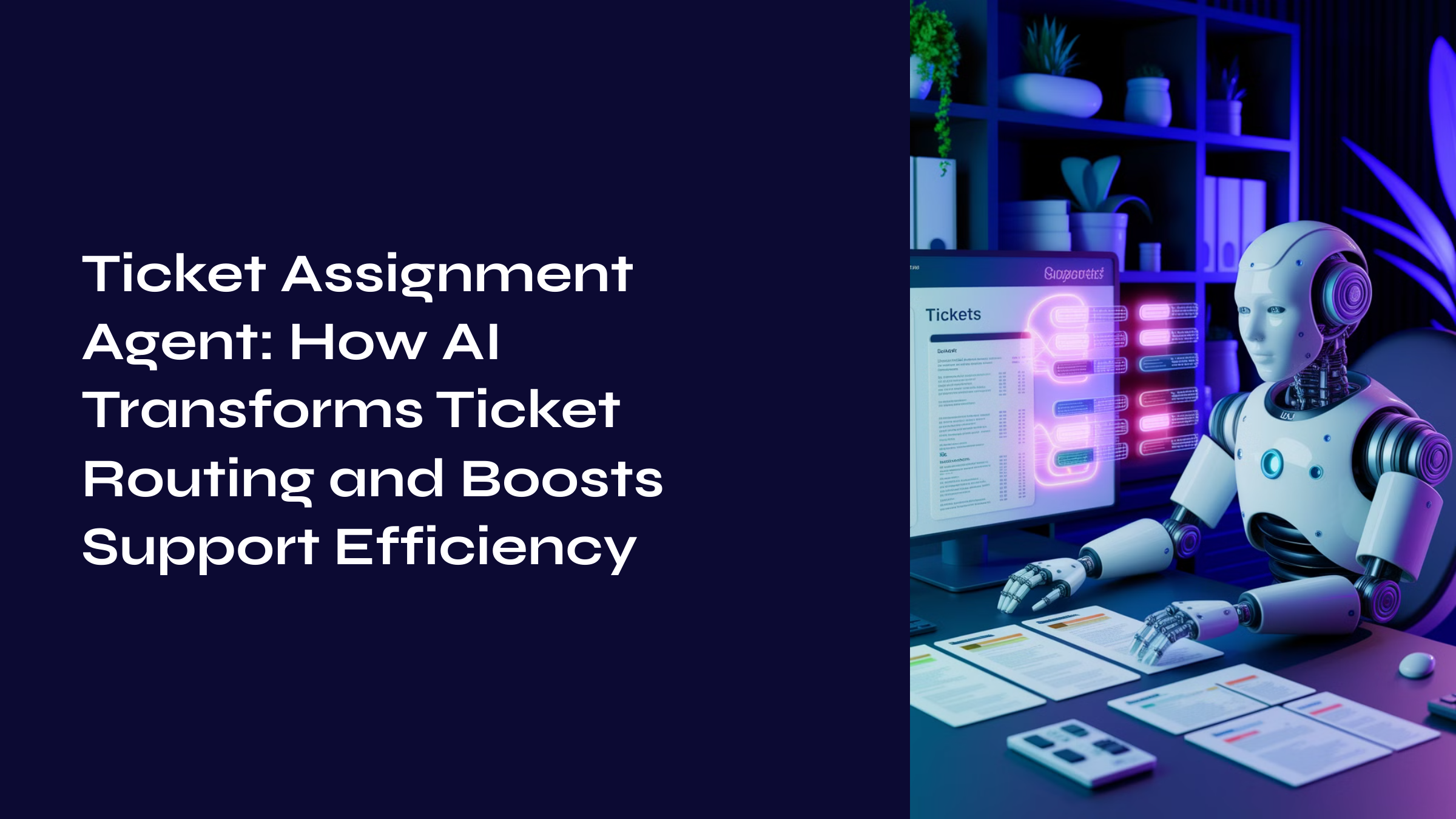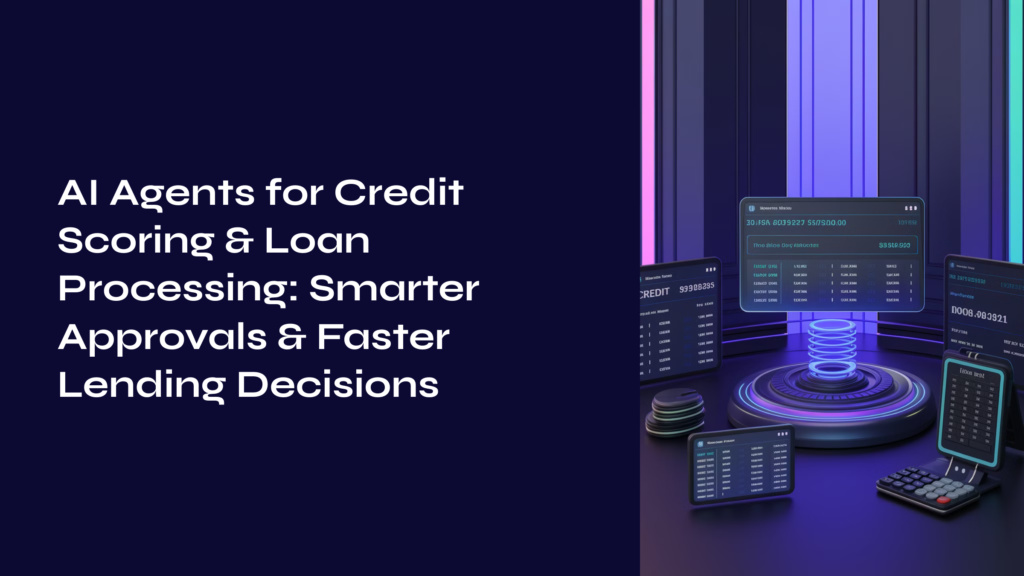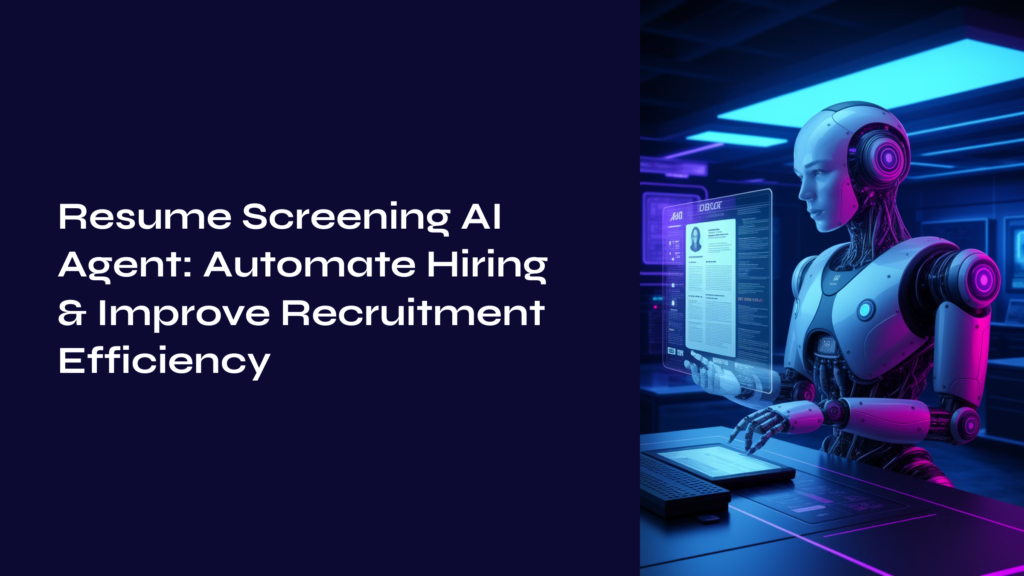Managing a growing volume of service tickets—whether from IT, HR, customer support, or legal—can quickly overwhelm even the most efficient teams. If you’re still assigning tickets manually, you’re likely facing slow response times, ticket misrouting, and inconsistent service experiences that frustrate both employees and customers.
This is where an AI-powered Ticket Assignment Agent comes in. Leveraging machine learning and natural language processing (NLP), it can automatically analyze, categorize, and assign incoming tickets to the right teams—enhancing accuracy, accelerating resolution times, and significantly improving support efficiency.
In this article, we’ll explore what a Ticket Assignment Agent is, how it works, the technology behind it, the real-world benefits it delivers, and key considerations for implementation. Whether you’re leading IT operations, optimizing customer support, or driving enterprise automation, this article will help you discover how AI can make your ticketing process smarter, faster, and more scalable.
To learn more about AI agents and their role across industries, explore AI Agents: What They Are, How They Work, and Industry Applications.
Many organizations still rely on manual processes to assign support tickets, but this outdated approach often leads to inefficiencies that affect service quality, employee productivity, and customer satisfaction. Here are some of the most common pain points:
These challenges highlight the urgent need for a smarter, more scalable approach. That’s where AI-powered ticket assignment comes into play.
A Ticket Assignment Agent is an AI-driven automation tool that streamlines the ticketing process by classifying and routing incoming support requests—across departments like IT, HR, customer service, and legal—to the right resource automatically.
Instead of relying on human agents to manually triage and assign tickets, this intelligent system uses NLP and machine learning models to understand the ticket’s context, urgency, and category. It then automatically routes each request to the most suitable team or agent.
Whether the input is a helpdesk email, chatbot query, or web form submission, the Ticket Assignment Agent can process it in real-time—reducing delays, eliminating errors, and freeing up your support teams to focus on solving issues, not sorting them.
If your organization handles high ticket volumes or is aiming for faster, more consistent service delivery, implementing a Ticket Assignment Agent is a proven way to scale operations with AI-powered precision.
While traditional ticket handling may have worked in the past, it simply doesn’t scale in today’s fast-paced, always-on business environment. As organizations grow and digital interactions increase, manual ticket assignment creates more problems than it solves.
Here’s why switching to automated ticket assignment is a smart move for modern enterprises:
In short, automating ticket assignment transforms your support operations from reactive to proactive—improving both customer satisfaction and internal efficiency while preparing your business to scale.
Implementing an AI-powered Ticket Assignment Agent doesn’t just modernize your support workflows—it delivers tangible business value across departments and functions. Here’s how:
The result? A more efficient, responsive, and scalable support operation that enhances user satisfaction while reducing internal strain.
Building a robust and efficient Ticket Assignment Agent requires a combination of advanced technologies that work together to process, classify, and route support tickets in real time. Here’s a breakdown of the key components typically involved in the tech stack:
NLP enables the system to understand and interpret the content of tickets—whether they come in as emails, chat messages, or form submissions. It extracts key phrases, identifies intent, detects sentiment, and recognizes entities like departments, issues, and urgency levels.
Popular Tools:
At the heart of a Ticket Assignment Agent is a machine learning model trained to categorize and assign tickets based on historical data. These models learn from previous tickets to predict the best department or agent for each new one.
Techniques Used:
To train accurate models, ticket data must be cleaned, tokenized, and structured. A strong data pipeline ensures consistent formatting and handles edge cases like language differences, typos, or incomplete tickets.
Technologies:
Once a ticket is classified, automation tools route it to the appropriate agent, group, or system. These engines can integrate with existing ticketing platforms and enforce business logic, SLAs, and escalation rules.
Common Tools:
Ticket Assignment Agents need to integrate seamlessly with helpdesk and ticketing platforms like ServiceNow, Zendesk, Freshdesk, or Salesforce Service Cloud. APIs are used to push and pull ticket data in real time.
Approach:
Scalability and performance are key—especially for high-volume environments. Cloud platforms allow models and routing engines to run in production with low latency and high availability.
Popular Options:
Since ticket data can include sensitive information, it’s critical to ensure secure data handling and compliance with regulations such as GDPR, HIPAA, or SOC 2.
Best Practices:
By combining AI, NLP, machine learning, and intelligent automation, this technology stack ensures that every ticket is understood, categorized, and routed with minimal delay and maximum accuracy. Whether you’re scaling support for IT, HR, customer service, or legal, this backbone enables a more intelligent, efficient, and future-ready ticketing experience.
Implementing an AI-powered Ticket Assignment Agent can be transformative—but like any tech initiative, it comes with its own set of challenges. Understanding these roadblocks in advance can help you plan better, minimize disruption, and accelerate success.
The Challenge:
AI models need high-quality, labeled historical ticket data to learn how to classify and route new ones. Many organizations face issues with inconsistent tagging, missing categories, or fragmented data across platforms.
How to Overcome It:
The Challenge:
Teams used to manual ticket triaging may feel skeptical or threatened by automation. Poor change management can lead to adoption delays or ineffective usage.
How to Overcome It:
The Challenge:
Even the best AI models may misclassify tickets in the early stages, especially if the use cases are highly nuanced or uncommon.
How to Overcome It:
The Challenge:
Older ticketing systems or siloed platforms may lack robust APIs or flexibility, making integration tricky.
How to Overcome It:
The Challenge:
Business processes, ticket types, and language patterns evolve over time—what works today may become outdated tomorrow.
How to Overcome It:
The Challenge:
Ticket content may include sensitive employee or customer information. Organizations need to ensure compliance with regulations like GDPR, HIPAA, or industry-specific standards.
How to Overcome It:
To reduce risk, begin with a pilot implementation in one business function—like IT support or HR service desk—and expand gradually. This allows you to fine-tune your model, gain stakeholder buy-in, and demonstrate ROI early.
At advansappz, we understand that every organization’s support needs are unique—and that building a reliable, AI-powered Ticket Assignment Agent requires more than just a prebuilt model. It takes strategic planning, the right technology stack, and a strong focus on scalability and sustainability. That’s exactly what we bring to the table.
We don’t believe in one-size-fits-all automation. Our team works closely with you to:
Whether your tickets come from emails, portals, chatbots, or third-party apps—we design the logic around your support ecosystem.
You don’t need to overhaul your current systems. We integrate the Ticket Assignment Agent with popular platforms like:
We also leverage middleware and APIs to ensure real-time data sync and bi-directional communication between systems—so nothing falls through the cracks.
As your business grows, so does your ticket volume—and complexity. Our solutions are:
We ensure your Ticket Assignment Agent grows with you—without compromise.
A truly intelligent system keeps learning. With advansappz, your Ticket Assignment Agent gets smarter over time through:
We help you maintain accuracy, adaptability, and trust in your AI agent—day in and day out.
From discovery to deployment and beyond, advansappz offers:
You’re backed by a team that understands enterprise challenges and knows how to deliver intelligent automation at scale.
As businesses evolve in a fast-paced, digital-first environment, manual ticket assignment simply can’t keep up with the growing demands for speed, accuracy, and efficiency. An AI-powered Ticket Assignment Agent transforms how support teams operate—automating routine classification and routing tasks so your team can focus on what truly matters: solving problems and delivering exceptional service.
From improving resolution times and reducing errors to scaling effortlessly across departments like IT, HR, and customer support, the benefits of automation are clear. But to unlock its full potential, you need a partner with deep expertise in AI, system integration, and enterprise support operations.
At advansappz, we help you design, implement, and scale intelligent ticket assignment systems tailored to your specific needs—ensuring a future-ready support infrastructure that grows with your business.
Whether you’re aiming to reduce resolution time, eliminate manual triaging, or scale your support without adding headcount—advansappz can help you turn automation into impact.
Let’s build your AI-powered Ticket Assignment Agent the right way—customized, future-ready, and truly sustainable.
Talk to our AI experts and take the first step toward smarter support operations.
Build Smarter Support with AI Agents
advansappz helps organizations build custom AI-powered support agents that automate ticketing workflows, enhance service consistency, and scale operations across departments.

Explore how advansappz helps organizations build intelligent AI agents that streamline ticketing, automate workflows, and deliver consistent, scalable support across teams.
Most Popular





Subscribe To Our Blog to Receive Weekly Updates
You may also like





Fill out the form below, and one of our experts will reach out to you shortly.
Thank You for Your Inquiry!
We appreciate you reaching out to us! Our experts are reviewing your request and will contact you shortly to discuss how we can support your business needs.
In the meantime, feel free to explore our website for more insights into our offerings: advansappz.
Thank you for considering us as your trusted partner! We look forward to connecting with you.